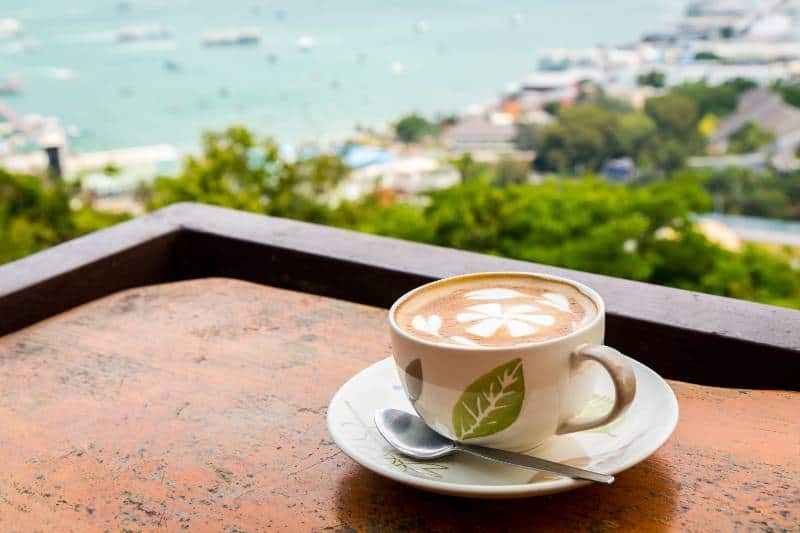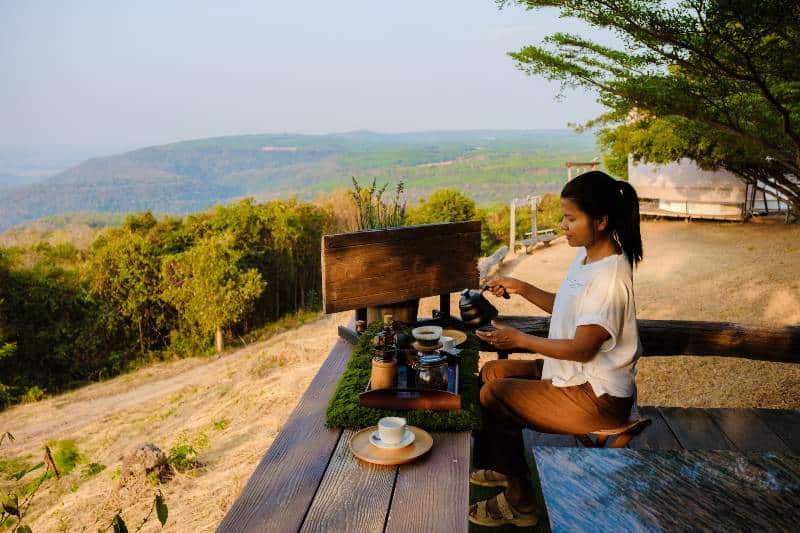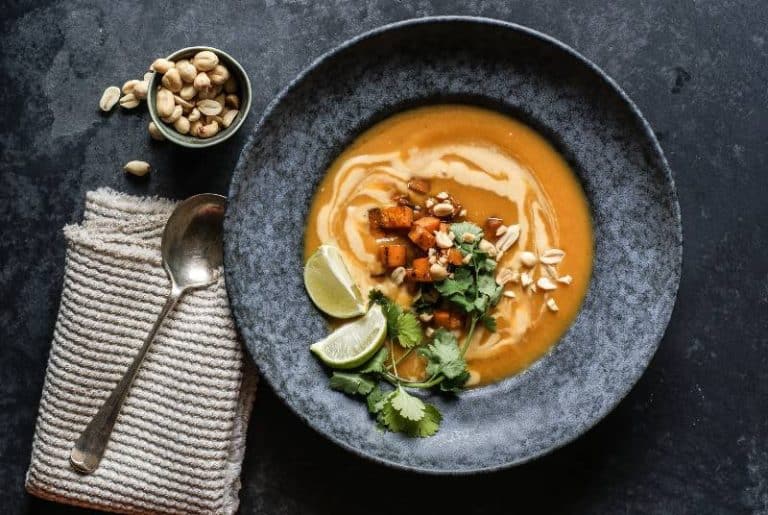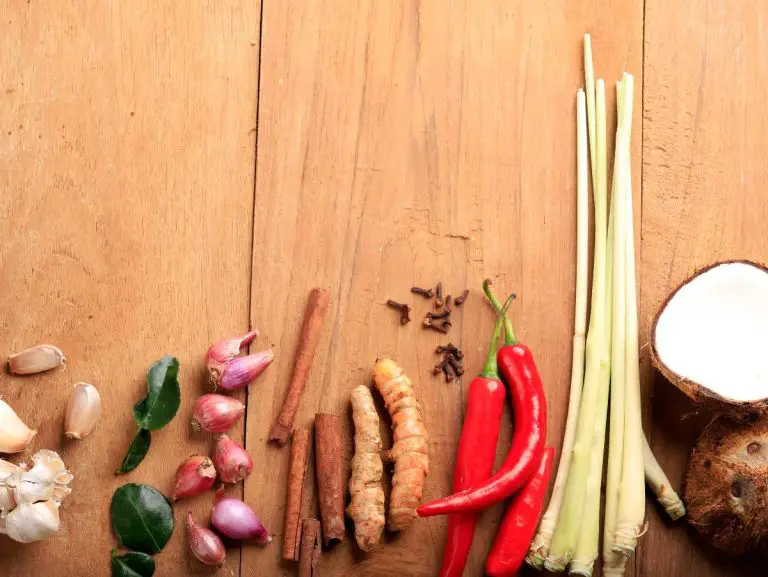Thailand’s Coffee Culture: A Caffeine Lover’s Guide
Are you a coffee lover? If yes, then Thailand is the perfect place for your caffeine fix. Located in Southeast Asia, Thailand has become home to some of the world’s best and most flavorful coffee experiences over the last few years. Whether it’s sipping espresso from an iconic street stand or relaxing leisurely with a more traditional pour-over brew at one of Bangkok’s many independent cafes, there’s something to satisfy every palate! In this blog post, we dive into Thai coffee culture and show you why it should be on your bucket list—enjoy!
Most of the agricultural land in Thailand is devoted to coffee cultivation, and Chiang Mai is known as the coffee capital of the country where the history of Thai coffee began.
Key Takeaways
- Thailand has a rich and vibrant coffee culture, with a history that spans several centuries.
- The country offers a diverse range of coffee varieties, from traditional brews to specialty and single-origin options.
- Each region of Thailand has its own unique coffee culture, with distinct flavors, brewing methods, and café scenes.

History of Coffee in Thailand
The arrival of Coffee in Thailand
The history of coffee in Thailand began in the late 19th century during the reign of King Rama V when the first coffee plants were brought into the country from Indonesia by Dutch traders. However, the cultivation of coffee didn’t gain much traction until the mid-20th century.
The real turning point for Thai coffee came in the 1970s when Thai King Bhumibol Adulyadej implemented the Royal Projects, a series of initiatives aimed at replacing the country’s opium cultivation with other cash crops. Coffee was identified as a suitable replacement due to its similar growing requirements to the opium poppy.
The hill tribes of northern Thailand, especially in the Chiang Mai and Chiang Rai provinces, began to grow coffee beans under the auspices of these Royal Projects, marking the first significant step in the development of Thailand’s coffee industry.
Development and Growth of the Coffee Industry
Over the decades, the coffee industry in Thailand has grown significantly, both in terms of volume and quality. Initially, the focus was on robusta coffee, a species known for its hardiness and high caffeine content, which was predominantly used in instant coffee blends. The output of robusta beans dramatically increased during the 1980s and 1990s, and Thailand became one of the top robusta producers in the world.
In the late 1990s and early 2000s, there was a strategic shift towards arabica coffee, a species known for its superior flavor and aroma, in response to the growing global demand for specialty coffee. Arabica coffee is typically grown in higher elevations, and the northern hills of Thailand provide an ideal environment for this type of coffee.
The growth and development of the Thai coffee industry has not been without challenges. Coffee farmers had to contend with issues such as pests, unpredictable weather patterns, and fluctuating global coffee prices. However, through the implementation of sustainable farming practices, investment in education and training, and continuous experimentation with different varieties and processing methods, Thai coffee farmers have managed to increase their yield and improve the quality of their beans.
Today, Thailand’s coffee industry is thriving. The country produces around 500,000 bags of coffee annually, making it one of the top coffee producers in Asia. The high-quality Thai arabica coffee has gained recognition in international coffee competitions, and Thai coffee farmers are increasingly seen as leaders in sustainable coffee production.
Influence of Thai Coffee on the Global Stage
Thai coffee has made a significant impact on the global coffee stage in several ways.
- The demand for specialty coffee has been growing worldwide, and Thai coffee, particularly its arabica variety, has been able to meet this demand. The unique combination of Thailand’s terroir, innovative farming practices, and meticulous processing methods results in coffee with distinctive flavors and aromas, which has gained recognition and won awards in global coffee competitions. For instance, Doi Chaang Coffee, a brand from Thailand, is highly appreciated globally for its single-estate, 100% Arabica coffee.
- Thai coffee farmers’ commitment to sustainable farming practices has also been recognized internationally. For instance, Akha Ama Coffee, a social enterprise in Chiang Mai, has gained international attention for its community-based approach to coffee production, which promotes biodiversity, conserves water, and improves the livelihoods of local farmers.
- Finally, the growth of the coffee industry in Thailand has influenced the rise of coffee culture in the country. Bangkok, in particular, has seen a surge in specialty coffee shops, many of which source their beans directly from local farmers. These coffee shops not only cater to the growing local demand for high-quality coffee but also attract international visitors, further enhancing the reputation of Thai coffee on the global stage.
Popular Coffee Varieties in Thailand
Traditional Thai Coffee
The traditional Thai coffee, known as ‘Oliang’ or ‘O-Liang’, is a strong, sweet, and creamy brew made primarily from robusta beans, which thrive in the country’s tropical climate. The blend used for Oliang often includes ingredients like corn, soybeans, and sesame seeds, which give it a unique and robust flavor. After brewing, the coffee is typically sweetened with condensed milk and served over ice, making it a refreshing drink in Thailand’s hot climate. Traditional Thai coffee is often enjoyed at street-side stalls and local markets, and it holds a special place in the country’s coffee culture.
Specialty and Single-Origin Coffee
In recent years, Thailand has seen a surge in the production and consumption of specialty and single-origin coffees, primarily made from arabica beans. These beans are grown in the high-altitude regions of northern Thailand, such as Chiang Mai, Chiang Rai, and Nan provinces. The cooler temperatures and mountainous terrains in these regions provide the perfect conditions for growing high-quality arabica coffee.
Specialty coffee refers to beans that have scored over 80 points on a 100 point scale by a certified coffee taster or a licensed Quality Grader. The surge in specialty coffee in Thailand has been fueled by an increased emphasis on quality, sustainable farming practices, and a growing local and international demand for premium coffee.
Single-origin coffee, as the name suggests, refers to coffee that comes from a single producer, crop, or region in one country. Single-origin coffees from Thailand offer a unique opportunity to taste the distinct flavors and aromas influenced by Thailand’s specific soil, climate, and topography. Some popular single-origin Thai coffee brands include Akha Ama, Doi Chaang, and Lanna Coffee.
Unique Flavors and Brewing Methods
Thai coffee is known for its unique flavors and brewing methods, which set it apart on the global stage. Thai arabica coffee, for example, often boasts flavors of dark chocolate, nuts, and citrus fruits, with a smooth body and bright acidity.
One of the unique brewing methods used in Thailand is the ‘Toddy’ or cold brew method, which involves steeping coffee grounds in cold water for an extended period (usually 12-24 hours). This method extracts a different flavor profile from the beans, resulting in a smooth, sweet, and full-bodied coffee that’s less acidic than its hot-brewed counterpart.
Another unique aspect of Thai coffee culture is the ‘Pha Chon’ or bag brew method, typically used for brewing Oliang. This method involves a fabric bag filter, which resembles a sock, attached to a metal ring and handle. The coffee is steeped in boiling water within this bag, then the bag is lifted, and the coffee is poured directly into a serving jug or cup.
In addition, Thai coffee culture also incorporates local flavors into coffee beverages. A popular example is ‘Egg Coffee’ or ‘Kai Thoon’, a drink that includes a mixture of coffee, an egg yolk, and sweetened condensed milk, resulting in a rich, sweet, and creamy brew.
Overall, Thailand’s coffee scene is rich and diverse, reflecting the country’s unique culture, innovative spirit, and dedication to quality and sustainability. Whether it’s the traditional Oliang, high-quality single-origin coffees, or unique brews with local flavors, Thai coffee offers a unique experience that coffee lovers can appreciate.
Coffee Culture in Different Regions of Thailand
Northern Thailand
Thailand, once an unknown entity in the coffee world, is now considered one of the top three coffee-producing countries in Asia. The reason behind the sudden increase in interest in Thai coffee is largely due to the success of Chiang Mai in Northern Thailand.
Chiang Mai, a city in Thailand, is well-known for its Buddhist temples and coffee. It produces the largest amount of arabica coffee in Thailand and contributes to the country’s annual export of over half a million 60-kilogram bags of coffee.
In 1969, King Bhumibol Adulyadej established the Tha Royal Project in Chiang Mai to encourage investment in sustainable industries, such as coffee cultivation. This initiative helped fuel the coffee boom in the region, as people were drawn to Thailand’s tasteful and sustainable coffee.
Central Thailand
Central Thailand, especially the capital city, Bangkok, is the heart of the modern coffee scene in the country. Influenced by Western coffee culture, Bangkok has seen a rise in specialty coffee shops that focus on serving high-quality, artisanal coffee. Many of these coffee shops source their beans directly from growers in the northern region of Thailand, promoting local produce and sustainability.
The coffee culture in Bangkok reflects a blend of traditional and contemporary. On one hand, you’ll find street vendors serving traditional Thai iced coffee (Oliang), brewed using a traditional ‘sock’ filter, and mixed with condensed milk. On the other hand, trendy cafes in Bangkok’s bustling districts like Thonglor and Ekkamai serve a variety of espresso-based drinks, pour-overs, and cold brews. These cafes often have a hip, modern aesthetic, and they serve as popular gathering spots for both locals and tourists.
Moreover, the coffee scene in Central Thailand has also been influenced by the country’s royal projects. For instance, in Hua Hin, a popular resort town, you’ll find cafes serving coffee produced under the Doi Tung Development Project, a royal initiative aimed at improving the lives of the hill tribes through sustainable agriculture.
Southern Thailand
In Southern Thailand, the coffee culture has been influenced by both the region’s Muslim heritage and its bustling tourist industry. The region’s most famous coffee comes from the island of Phuket, where local producers grow both arabica and robusta beans.
Here, you’ll find a unique coffee drink known as ‘Kopi’, which originated from the local Muslim community. Kopi is brewed using a metal pot with a spout and is typically sweetened with condensed milk and sugar. This is different from the traditional Thai coffee and is reminiscent of the coffee culture found in other Southeast Asian countries like Malaysia and Indonesia.
In tourist hotspots like Phuket and Krabi, the coffee scene mirrors the diversity of its visitors. You’ll find everything from traditional Thai coffee stalls to high-end espresso bars, serving up international favorites like cappuccinos and lattes, often with a Thai twist such as using local spices or Thai honey.
Regardless of the region, what unites the coffee culture in Thailand is the emphasis on quality and the spirit of innovation. Both traditional Thai coffee and modern, Western-inspired coffee coexist and thrive, providing a rich, vibrant coffee scene that caters to a wide range of tastes and preferences.
Famous Coffee Shops and Cafés
- Cafe de l’Ambre: This long-established café has been serving up traditional Thai coffee since the 1940s. Known for its old-world charm, it’s also a great place to try out the unique local method of coffee preparation.
- Factory Coffee: This industrial-themed café is known for its specialty coffee. Their brews are crafted from Thai and international beans, and the place often hosts coffee workshops and tasting sessions.
- Roots Coffee Roaster: One of the key players in Bangkok’s third-wave coffee scene, Roots is renowned for its commitment to quality and sustainability. The café works directly with Thai farmers to source its beans.
Iconic Coffee Establishments in Chiang Mai
- Ristr8to: Known worldwide for its barista’s latte art skills and winning several barista awards, Ristr8to is a must-visit for any coffee lover. They serve unique coffee blends inspired by different parts of the world.
- Akha Ama: This socially-conscious café sources its beans from hill tribes in northern Thailand. It’s a great place to enjoy a quality cup of coffee while also supporting local communities.
- Ponganes Espresso: Ponganes is a favorite among coffee connoisseurs for its exceptional quality of beans and the meticulous care they take in brewing. They roast their beans on-site, and the aroma alone is worth the visit.
Notable Coffee Spots in Other Thai Cities
- Gallery Drip Coffee (Khet Pathum Wan, Bangkok): A paradise for drip coffee lovers, this café boasts an artistic ambiance and pays serious attention to the coffee brewing process.
- Brave Roasters (Siam Square, Bangkok): A hip and modern café known for its exceptional coffee and delectable pastries. Their beans are sourced from different parts of the world and are expertly roasted on-site.
- Mundo Café (Phuket): This family-owned café is known for its warm, welcoming atmosphere and delicious, fresh coffee. Mundo Café sources its beans from the north of Thailand, keeping a focus on sustainability and fair trade.
- Nine One Coffee (Phitsanulok): This café and roaster is a local favorite known for its meticulously crafted coffee. They source high-quality beans from various regions and offer brewing classes for those interested in learning the art of coffee preparation.
- Graph Café (Chiang Mai Old City): With its tiny space and industrial chic aesthetic, Graph Café is a hidden gem in Chiang Mai. They serve cold brew coffee, and their innovative and creative menu is worth exploring.
Don’t forget, as much as these cafes are worth a visit, half the adventure lies in uncovering your very own treasured spots! Thailand’s vibrant coffee scene is brimming with variety and flavors, catering to every palate out there. Get ready to indulge in a coffee culture like no other!
Thai Coffee Rituals and Traditions
Traditional Thai Coffee Ceremonies
While Thailand doesn’t have a formalized coffee ceremony akin to the traditional Ethiopian or Japanese tea ceremony, the preparation and consumption of traditional Thai coffee, Oliang, is a ritualistic experience in itself. The process is slow, allowing people to appreciate the coffee brewing method and the aroma that fills the air. This is especially prevalent in rural areas and amongst the older generation.
Oliang is typically brewed using a traditional cloth bag filter, often referred to as a ‘sock’ due to its appearance. The coffee grounds, along with other ingredients such as corn, soybeans, and sesame seeds, are placed in this cloth bag. Boiling water is then poured over the contents, allowing the brew to drip slowly into a pot below.
The coffee is then served over ice and sweetened with condensed milk. This traditional brewing and serving method is often conducted at street-side stalls and local markets, adding a sense of familiarity and community to the experience.
Unique Customs and Etiquette
In the Thai coffee culture, respect and courtesy are integral. This is demonstrated through small gestures such as serving elders first and always using both hands when giving or receiving a cup of coffee, as a sign of respect. It is common to see Thais ‘wai’ (a gesture of respect involving a slight bow with the palms pressed together) when serving coffee, especially in traditional settings.
In addition, Thais are known for their hospitality and it’s common for guests to be offered a cup of coffee when visiting a Thai home or even a shop. Declining such an offer is not considered rude, but accepting it is seen as a way of acknowledging and appreciating the host’s hospitality.
Coffee as a Social Experience in Thailand
In Thailand, coffee is more than just a beverage; it is a significant part of the social fabric. Coffee shops, whether they are traditional roadside stalls or modern, trendy cafes, serve as important social spaces where people meet, catch up, and relax.
In bustling cities like Bangkok, trendy cafes offer a respite from the city’s frenetic pace. They are places where young Thais meet to chat, study, or work, reflecting the influence of the global ‘cafe culture’. These cafes often host events such as barista workshops, coffee tastings, and live music, further enhancing their role as community spaces.
In the rural and northern regions of Thailand, coffee cultivation and brewing is a communal activity. Coffee is often shared amongst community members and used as a way to bring people together. Many farming communities host local coffee festivals, where farmers can showcase their coffee, share their farming practices, and celebrate their achievements.
Moreover, as part of the Royal Projects, coffee is used as a tool for social and economic development. These projects have helped to improve the livelihoods of hill tribes by replacing opium cultivation with coffee farming. This has not only boosted local economies but also fostered a sense of community pride and cooperation.
Exploring Coffee Plantations and Farms
Coffee Farm Tours and Experiences
Thailand, being one of Asia’s major coffee-producing countries, offers numerous opportunities to explore coffee plantations and farms, particularly in the northern regions. These coffee farm tours and experiences allow visitors to explore the verdant coffee landscapes, interact with local farmers, and learn about the journey of the coffee bean from farm to cup.
- Doi Chaang Coffee Farm: Known globally for its premium quality Arabica coffee, Doi Chaang offers guided tours of its vast coffee estate located in the highlands of Chiang Rai. Visitors can walk amidst the coffee trees, observe the process of coffee cultivation, and learn about the unique Doi Chaang coffee processing method.
- Akha Ama Coffee: This socially responsible enterprise based in Chiang Mai conducts tours that take you to the heart of its coffee farming community. The experience allows you to gain a firsthand understanding of sustainable farming practices and the community’s way of life.
- Mae Sa Valley Craft Village: In addition to various craft workshops, this village in the Mae Rim district of Chiang Mai province also has a coffee plantation, where visitors can enjoy a pleasant walk and learn about coffee growing.
Learning About Coffee Cultivation in Thailand
The majority of the coffee farm tours in Thailand offer insights into the process of coffee cultivation. They cover a range of topics including:
- Coffee Varieties: Learn about the two main varieties of coffee grown in Thailand – the hardy Robusta commonly used in traditional Thai coffee and the more delicate Arabica which is popular in specialty coffee.
- Growing Process: Discover how coffee is grown, from planting the seed to nurturing the coffee tree, and understand the challenges faced by farmers, such as pest control, climate conditions, and disease management.
- Harvesting: Understand how coffee cherries are handpicked, ensuring only the ripe cherries are selected. This process is crucial for maintaining the quality of the coffee.
- Processing Methods: Learn about the different methods used to process coffee in Thailand, from the traditional natural (dry) method to the more modern washed (wet) method. This step is where the coffee beans are separated from the cherry and dried.
- Sustainability: Gain insights into sustainable farming practices, such as intercropping, organic farming, and water conservation. Many Thai coffee farms are committed to sustainability, which not only protects the environment but also improves the quality of the coffee.
Coffee-Related Activities and Workshops
In addition to tours, many coffee farms and plantations in Thailand offer a variety of coffee-related activities and workshops. These can include:
- Coffee Tasting: Learn how to taste coffee like a professional. Understand the different flavor profiles, body, acidity, and aroma of coffee. This can be a fascinating experience, particularly when tasting high-quality, single-origin Thai coffee.
- Barista Workshops: Learn the skills of a barista, from grinding the coffee beans to the right consistency, mastering the art of espresso extraction, and even creating latte art.
- Coffee Roasting: Some farms offer workshops on coffee roasting, where you can learn about the transformation of the green coffee beans into the aromatic brown beans that we are familiar with.
- Farm Activities: Participate in the actual farming activities. Depending on the season, you may get to plant coffee seedlings, pick ripe coffee cherries, or assist in the coffee processing.
These immersive experiences provide a deeper understanding and appreciation of coffee, making your trip to a Thai coffee farm or plantation not only informative but also enriching and enjoyable.
Thai Coffee Souvenirs and Products
Must-buy coffee products in Thailand
If you’re a coffee enthusiast visiting Thailand, there are a multitude of coffee products that you simply must add to your shopping list.
- Local Coffee Beans: Thailand, particularly Northern Thailand, is known for its rich, flavorful coffee beans. It’s a well-kept secret among coffee connoisseurs that Thai coffee beans offer a unique taste, attributed to the high altitude, tropical climate, and fertile soil. You should look for Doi Chang or Doi Tung beans, which are renowned for their quality. If you want a truly unique flavor, consider buying peaberry coffee beans which are rare and known for their rich flavor.
- Ground Coffee: If you don’t have the equipment to grind beans yourself, consider buying ground coffee. Thai ground coffee is made from robusta or arabica beans, and some blends incorporate local flavors like vanilla or coconut.
- Instant Thai Coffee: Instant coffee is popular in Thailand, and local brands have a distinct taste. Brands like Khao Shong and Moccona are must-tries.
- Thai Coffee Filters: Thai traditional coffee brewing involves a “tungdtom” or “tung tom kah fe”, a cloth filter that is used to steep coffee grounds in hot water. It’s reusable, easy to carry, and it gives your coffee a traditional Thai touch.
- Thai Coffee Flavored Snacks: You can find a variety of snacks infused with Thai coffee flavor like coffee candies, coffee cookies, and even coffee-flavored ice cream. These make excellent gifts for the foodies in your life.
Coffee-themed souvenirs and gifts
In addition to actual coffee products, Thailand offers a plethora of coffee-themed souvenirs and gifts to remember your trip by or to give to loved ones.
- Coffee Mugs: There are countless styles of coffee mugs available throughout Thailand, from traditional designs inspired by Thai culture to modern styles reflecting the booming café scene.
- Coffee Art: Many Thai artists use coffee as a medium to create beautiful artwork, with themes ranging from Thai landscapes to abstract designs. These pieces of art are unique and meaningful souvenirs.
- Coffee-Scented Candles: With these, you can take the aroma of Thai coffee home with you. They are available in various sizes and make a perfect souvenir or gift.
- Coffee Jewelry: Coffee bean-shaped pendants, earrings, or bracelets make a unique souvenir for the coffee lover in your life.
- Coffee T-Shirts: These are popular among tourists and locals alike, with designs ranging from humorous coffee-related quotes to chic coffee bean prints.
Where to find the best coffee-related shopping
- Chiang Mai: Known as the coffee capital of Thailand, Chiang Mai has numerous coffee plantations where you can purchase locally grown beans directly. The city also has several markets, like the Night Bazaar and Sunday Walking Street Market, where you can find a variety of coffee-themed gifts and souvenirs.
- Bangkok: The capital city of Thailand has a burgeoning coffee culture. You can find a variety of coffee products in department stores and supermarkets. For a unique shopping experience, visit the Chatuchak Weekend Market, which is the largest market in Thailand.
- Hua Hin: This popular resort town has several specialty stores where you can find premium coffee beans and coffee-themed souvenirs.
- Online: Many Thai coffee brands have online stores that ship worldwide, so even if you’re not visiting Thailand soon, you can still get a taste of Thai coffee. Websites like ‘Thai Coffee Direct’ or ‘Amazon’ offer a wide variety of Thai coffee products.
Remember, when buying coffee beans, it’s best to look for those that have been recently roasted, as coffee is best consumed within a month of its roast date. Whether you’re a coffee aficionado or simply a lover of unique flavors and experiences, Thailand’s coffee scene has something to offer you. Enjoy your coffee shopping journey!
Thai Coffee and Street Food Culture
Pairing coffee with popular Thai street food
In Thailand, coffee is more than just a morning pick-me-up. It is deeply embedded in Thai food culture, and you can often find Thais pairing coffee with popular street food to complement the variety of flavors.
- Thai Coffee and ‘Patongo’: One classic pairing is Thai coffee with ‘Patongo’, also known as Chinese donuts. The sweetness of the donuts pairs perfectly with the strong, often bitter flavors of Thai coffee. Dipping the doughnut into the coffee softens it and infuses it with a delicious coffee flavor.
- Iced Coffee and ‘Som Tum’: Thai iced coffee, known as ‘Oliang’, is often enjoyed with ‘Som Tum’, a spicy green papaya salad. The strong, sweet, and creamy coffee helps to counterbalance the fiery heat of this popular Thai dish.
- Coffee with Thai Breakfast: It is also common to pair coffee with traditional Thai breakfast dishes like ‘Jok’ (rice porridge) or ‘Khao Kai Jeow’ (Thai omelette). The mild flavors of these breakfast dishes provide a blank canvas that allows the coffee’s robust taste to shine through.
Local coffee specialties and snacks
Coffee in Thailand has evolved into a range of local specialties and snacks that are unique to the country.
- Oliang: This is traditional Thai iced coffee, usually a mix of coffee, corn, and soybeans. It’s often sweetened with condensed milk, served over ice, and has a robust, unique flavor.
- Yen Ta Fo: While not a snack, this pink noodle soup is served in many Thai coffee shops. The vibrant dish gets its color from fermented tofu and is a nice savory contrast to the sweet, creamy iced coffee.
- Coffee Banana Chips: Coffee and bananas are both products of Thailand’s lush landscape. These chips combine the two flavors into a sweet, caffeinated snack.
- Kanom Krok: This is a popular Thai street snack often enjoyed with coffee. These coconut-rice pancakes are crispy on the outside, soft and creamy on the inside, and make a perfect companion to a cup of strong Thai coffee.
Exploring coffee in Thai food markets
One of the best ways to experience the rich coffee culture of Thailand is by exploring the country’s bustling food markets.
- Or Tor Kor Market, Bangkok: This is one of the best places to find a range of locally produced coffee. The market is also home to several stalls that serve freshly brewed Thai coffee along with delicious street food.
- Chiang Mai Night Bazaar: This sprawling market is a great place to sample northern Thailand’s unique coffee culture. Here, you’ll find vendors selling coffee beans grown in the nearby mountains, as well as stalls serving traditional Thai iced coffee.
- Pak Klong Talad, Bangkok: Known as the largest wholesale and retail fresh flower market in Bangkok, this market also offers a selection of local coffee beans and unique coffee snacks.
- Phuket Weekend Market: If you’re in Phuket, this vibrant market offers a wide variety of street food to pair with your coffee, as well as locally-grown coffee beans.
Remember, drinking coffee in Thailand is not just about the beverage itself, but also about the experience of immersing yourself in the local culture and lifestyle. So take your time, enjoy the food, and let the unique flavors of Thai coffee surprise you.
I know you’ll absolutely love exploring Thailand’s rich and vibrant culture. Be sure to check out this fascinating article on the Best Museums in Thailand: A Cultural Exploration. It’s a wonderful opportunity to immerse yourself in the country’s history, art, and traditions while gaining a deeper understanding of its captivating heritage.

A Guide to Thailand’s Coffee Culture FAQs
Can I visit coffee plantations in Thailand?
Yes, there are several coffee plantations and farms in Thailand that you can visit. These include the Doi Chaang Coffee Farm in Chiang Rai, Akha Ama Coffee in Chiang Mai, and Mae Sa Valley Craft Village in the Mae Rim district of Chiang Mai province.
What are some popular coffee souvenirs to bring back from Thailand?
Some popular coffee souvenirs to bring back from Thailand include locally roasted coffee beans, traditional Thai coffee mixes, and other coffee-themed items such as mugs, t-shirts, postcards, etc. You can find these at local markets or specialty stores in major cities like Bangkok and Chiang Mai.
How does coffee pair with Thai street food?
Coffee is a great accompaniment to Thai street food because of its earthy, bold flavor. It pairs well with savory dishes such as Pad Thai and spicy curries. It also complements sweet treats like mango sticky rice or roti. Additionally, coffee can be used in the preparation of certain dishes, lending them an additional layer of complexity and flavor.
Which region of Thailand has the best coffee culture?
Chiang Mai is the undisputed coffee capital of Thailand, with its superb Arabica beans and vast network of small-scale farms. Additionally, its vibrant street food culture makes it an ideal place to explore the flavors of Thai coffee. Other regions such as Chiang Rai and Mae Rim are also known for their high-quality coffee beans and offer unique experiences for visitors to discover.
Can I get involved in coffee farming activities when visiting a plantation?
Yes, many of the plantations in Thailand offer hands-on experiences such as planting seedlings, harvesting ripe cherries, and learning about processing methods. Additionally, you can often take part in barista workshops or coffee roasting classes. These activities provide an immersive experience that will helpIs there a significant difference between traditional Thai coffee and specialty coffee?
Conclusion
Thailand’s coffee culture provides a wealth of history and unique flavor profiles that can be experienced around the world. From Arabica beans to specialty brews found only in Thailand, there is something for every type of coffee lover. We hope you’ve enjoyed our guide to Thailand’s coffee culture and have gained insight into this fascinating country’s vibrant and multi-faceted coffee industry.
If you would like to stay up-to-date with the newest developments in Thai coffee culture, be sure to sign up for our newsletter today where you will receive daily updates, as well as access to exclusive offers. Experience all that Thailand’s delicious and aromatic coffees have to offer – it may just become your favorite beverage!





